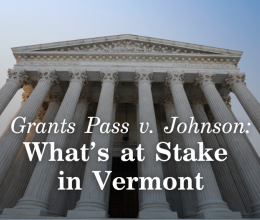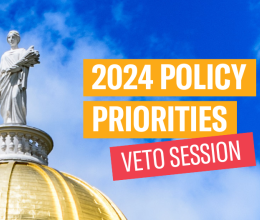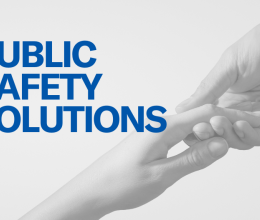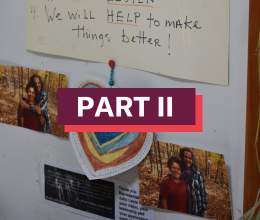
By James Duff Lyall, Executive Director, ACLU of Vermont
Vermonters concerned about public safety have every right to insist on solutions, and the solutions are well known.
As John Jay College’s Advisory Group on preventing community violence reminds us, “Community violence is more prevalent in neighborhoods where residents face severe and chronic financial stress.” A mountain of data and research back that up – public safety hinges on the economic well-being of the community at large, and when we address extreme economic inequality and invest in community resources and support networks, crime goes down.
The fact is, we have been neglecting to invest enough in communities for decades – and it’s showing. And that was true before the global pandemic compounded those strains and stresses even further.
And yet, that part – the fact that economic and racial injustices in our communities determine how stable, resilient, and safe those communities are going to be – is often left out of our conversation about public safety and policing.
Meanwhile, we have seen the resurgence of “tough on crime” narratives in places like Burlington, where the mayor is calling for more punitive criminal laws and opposing residents' efforts to strengthen police oversight – on the dubious theory that calling for police accountability will hinder police recruiting efforts.
Putting aside the obvious questions of what kind of police culture the mayor is trying to create, and what kind of officers he hopes to recruit – those who embrace being accountable to the people they serve, or those who don’t – the fixation on criminalization and prisons is also deeply misguided.
It’s the same approach that has led to an explosion of mass incarceration and racial profiling in Vermont and nationwide. It has cost billions of dollars and ruined countless lives. And, it hasn’t made us safer. Decades of history, experience, research, and data tell us it’s a dead end – a massive public policy failure.
Not only does it not work – it distracts attention from the real solutions that are available to address the root causes of the many serious challenges facing our communities, and that could make our cities and towns more stable and therefore safer for all of us. That includes badly needed investments and policy reforms in affordable housing, mental health care, addiction treatment, youth programs and education – all the things that we have drastically underfunded for decades.
Indeed, as spending on law enforcement has ballooned over the past three decades, many areas that support healthy communities and strengthen our social fabric have been cut or level funded. For all the talk of “defunding,” one could more accurately say that Vermont has defunded its social safety net and the public programs and supports on which our public safety relies.
The “tough on crime” narrative also distracts attention from how our leaders are managing – or mismanaging – existing public safety resources, as well as longstanding problems in police practices and culture that still need to be addressed. Whether that’s racial profiling, abuse of power, or lack of accountability – all of which undermine the public trust on which community policing is said to rely – there is much unfinished business that has been sidelined amidst the police backlash against the Black Lives Matter movement.
We all want to be a part of thriving communities, and that’s what people love about Vermont – that tradition of communities supporting one another and working towards collective solutions together. It’s a big part of what makes this state so special. And that’s why we should all be committed to finding solutions that prevent crime from occurring in the first place.
Vermont has made admirable progress towards smarter, fairer criminal justice policies in recent years, and there is far more work still to be done. That is what the people of Vermont have continually and consistently said they want – data-informed, effective criminal justice policies, and investments that support our neighbors and community members so that they don’t struggle.
Our hope for 2023 is that more state leaders inside and outside of law enforcement will reject the failed, punitive approaches of the past, focus on root causes, and come together to prioritize effective solutions. Their constituents should keep urging them to do just that.
A version of this commentary appeared in VTDigger.



